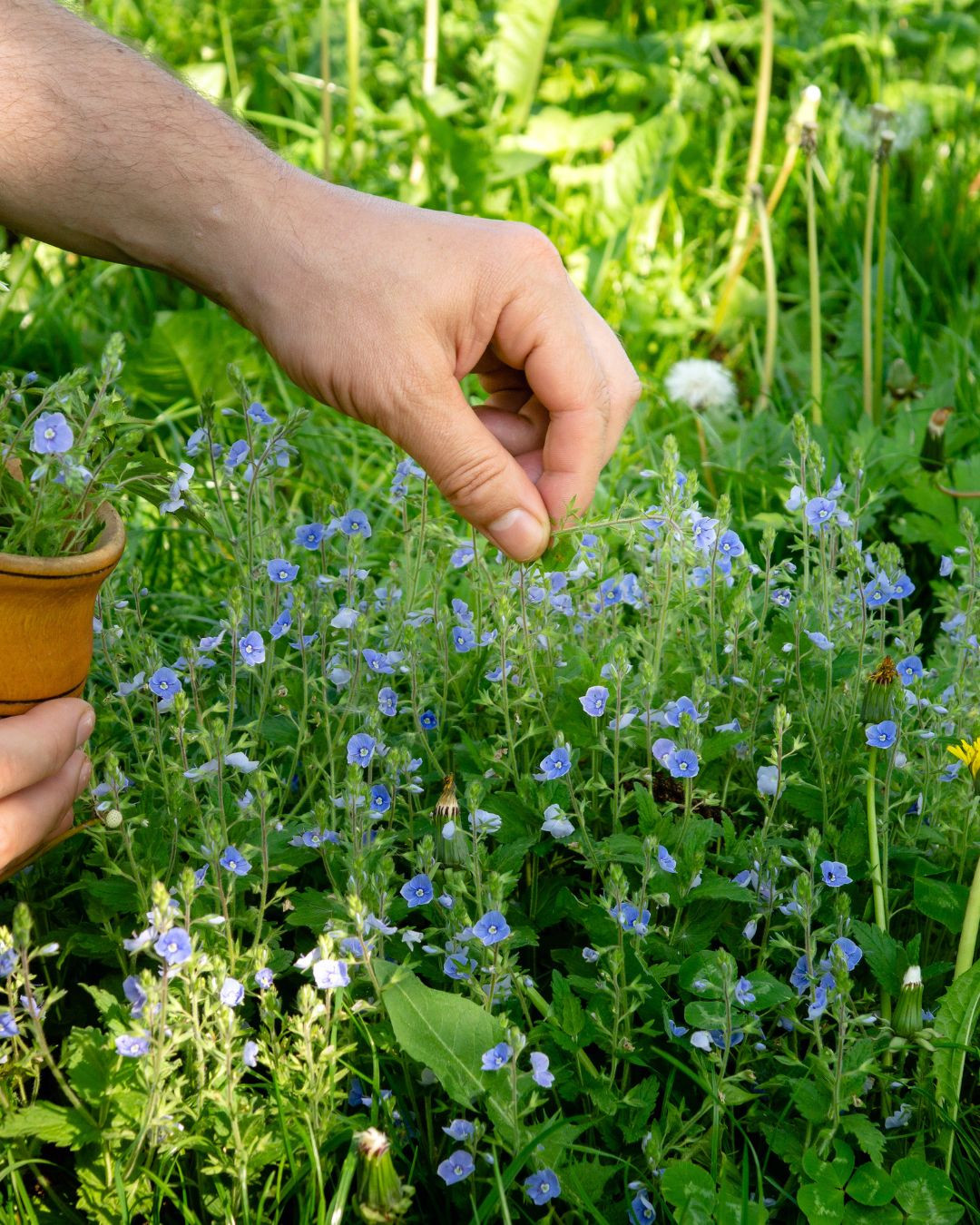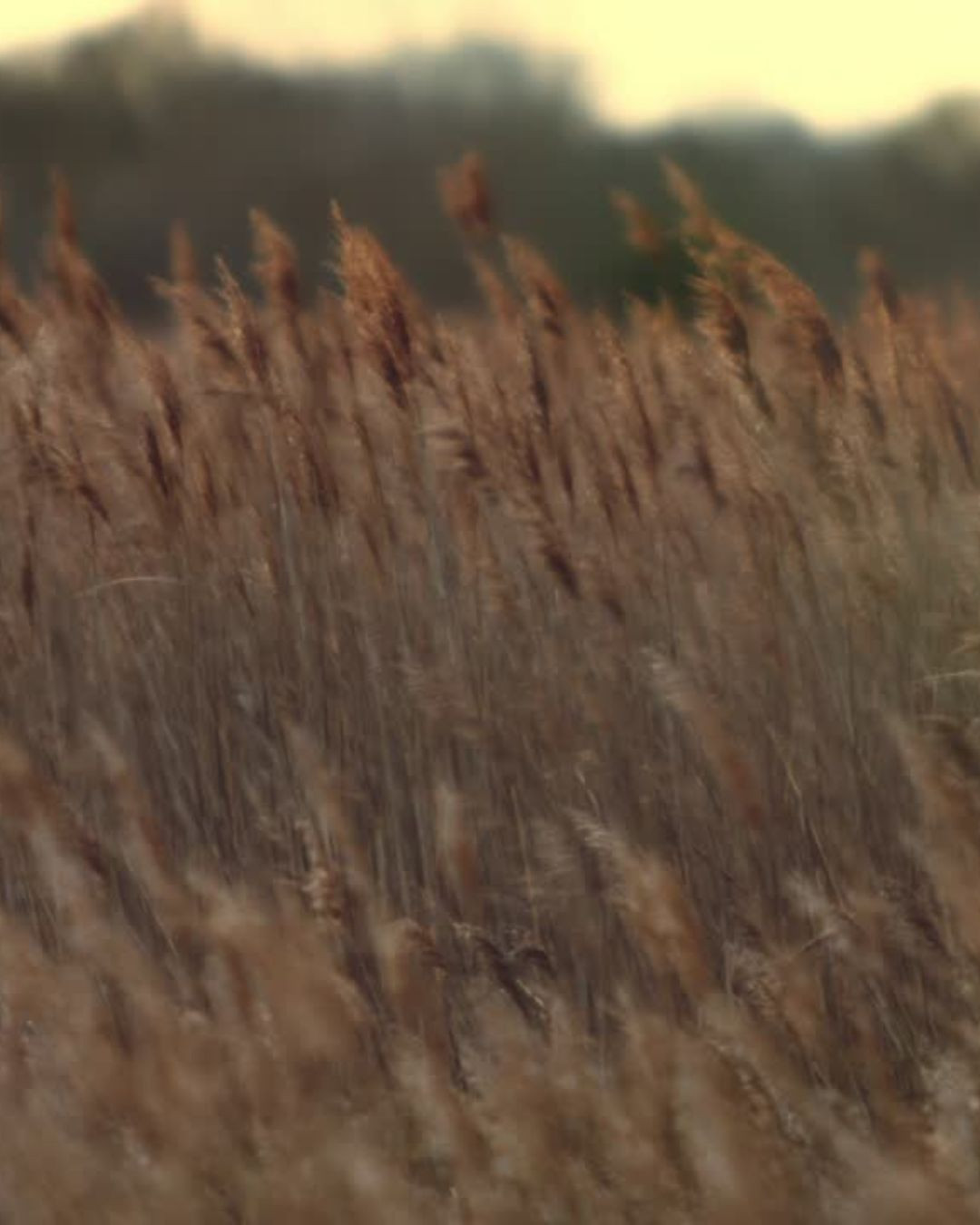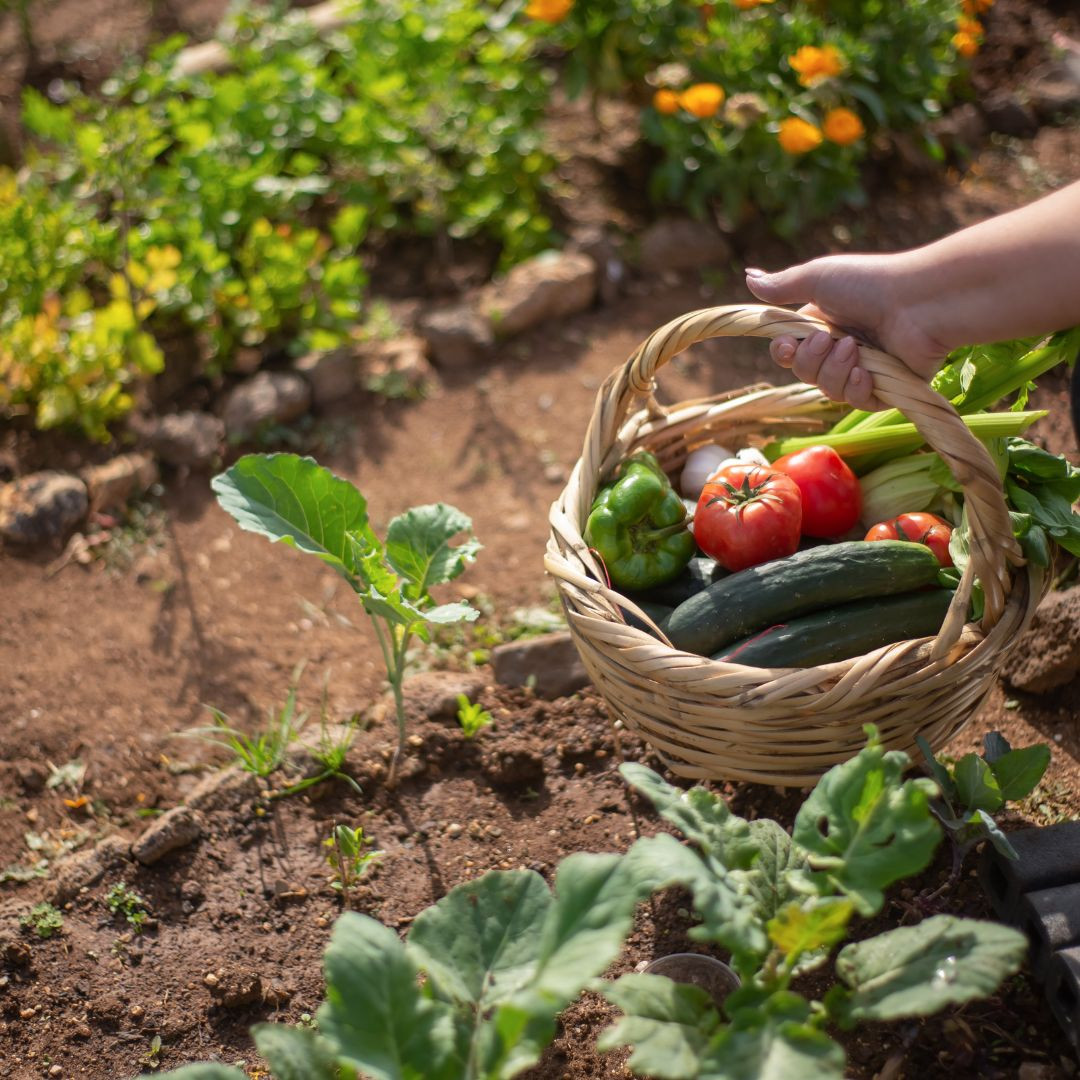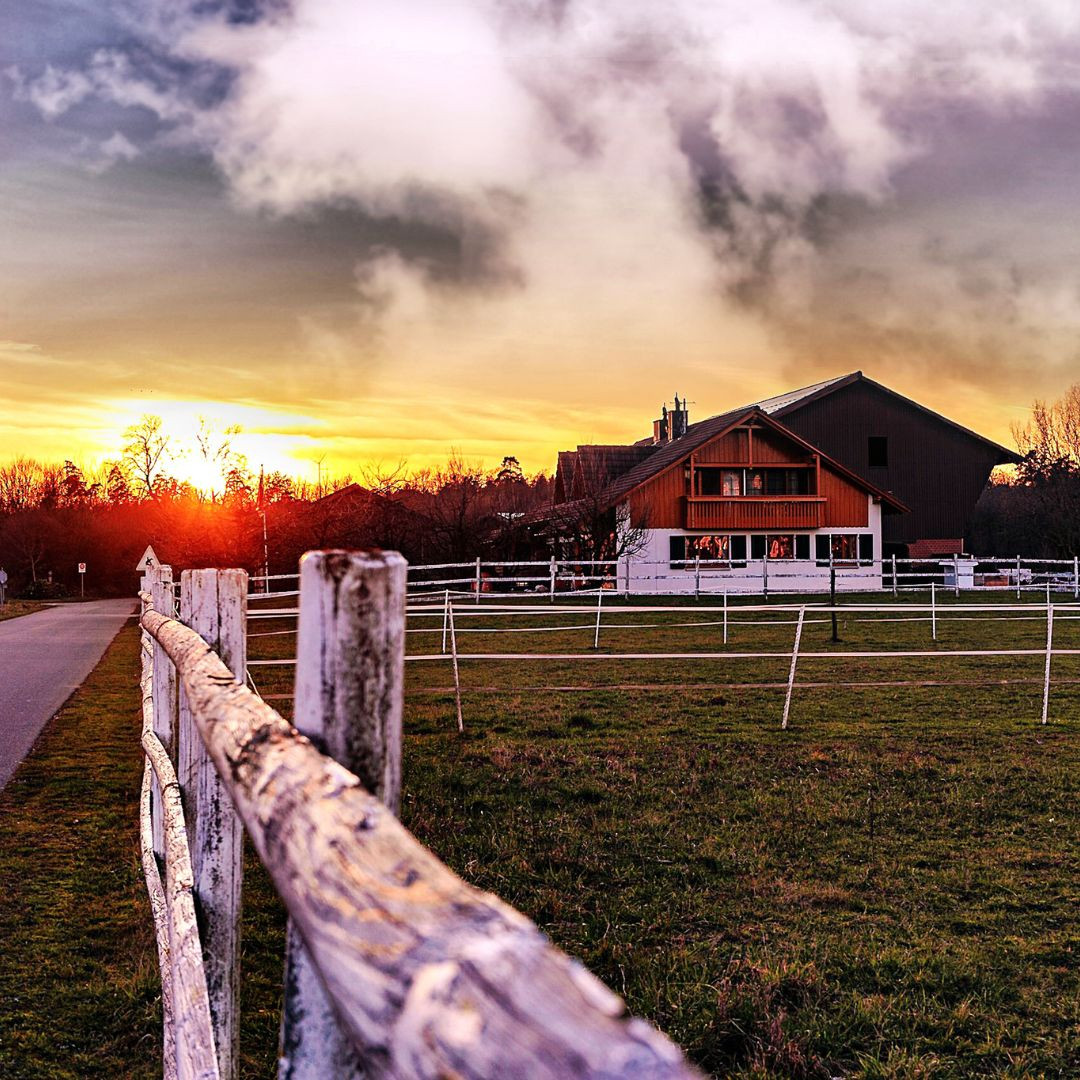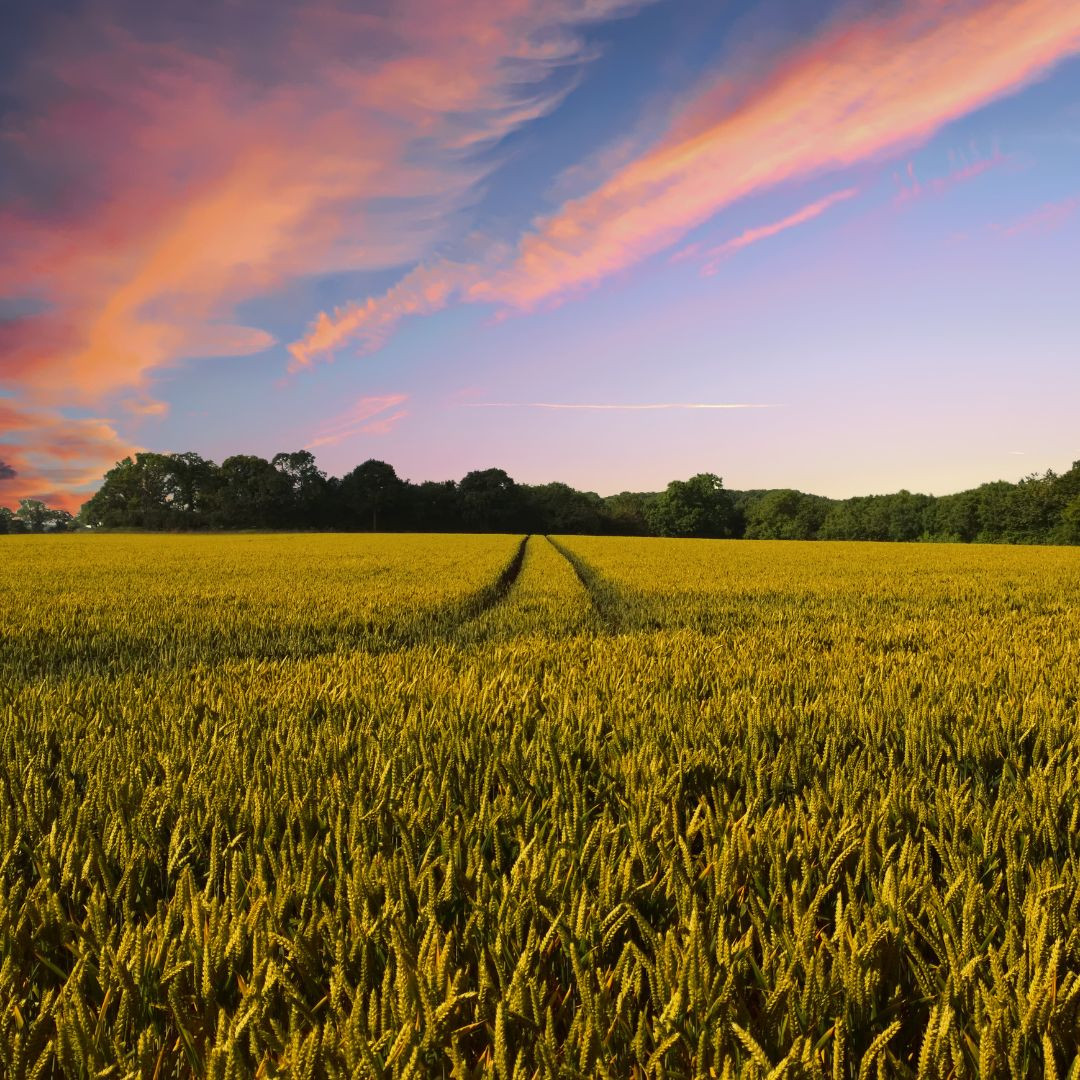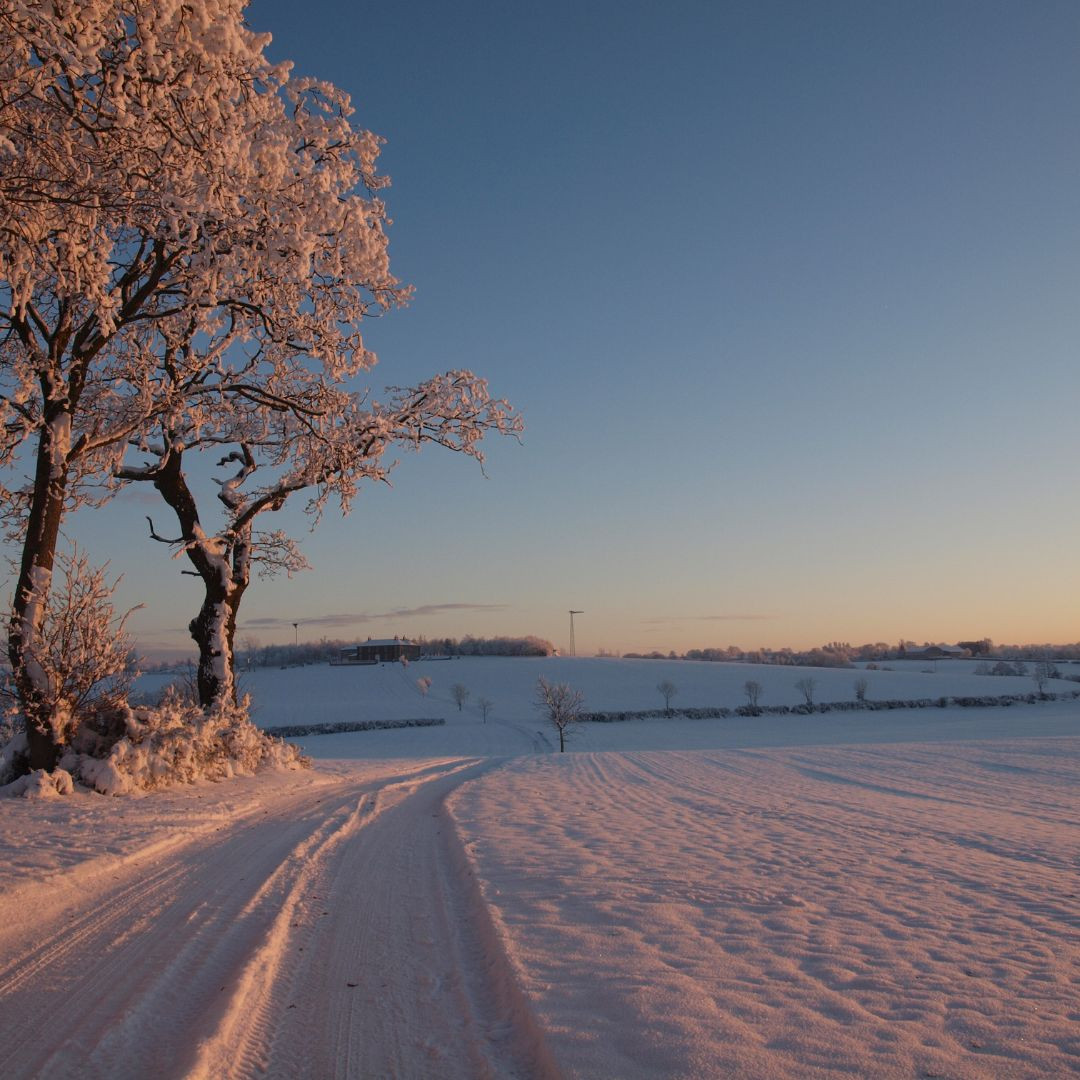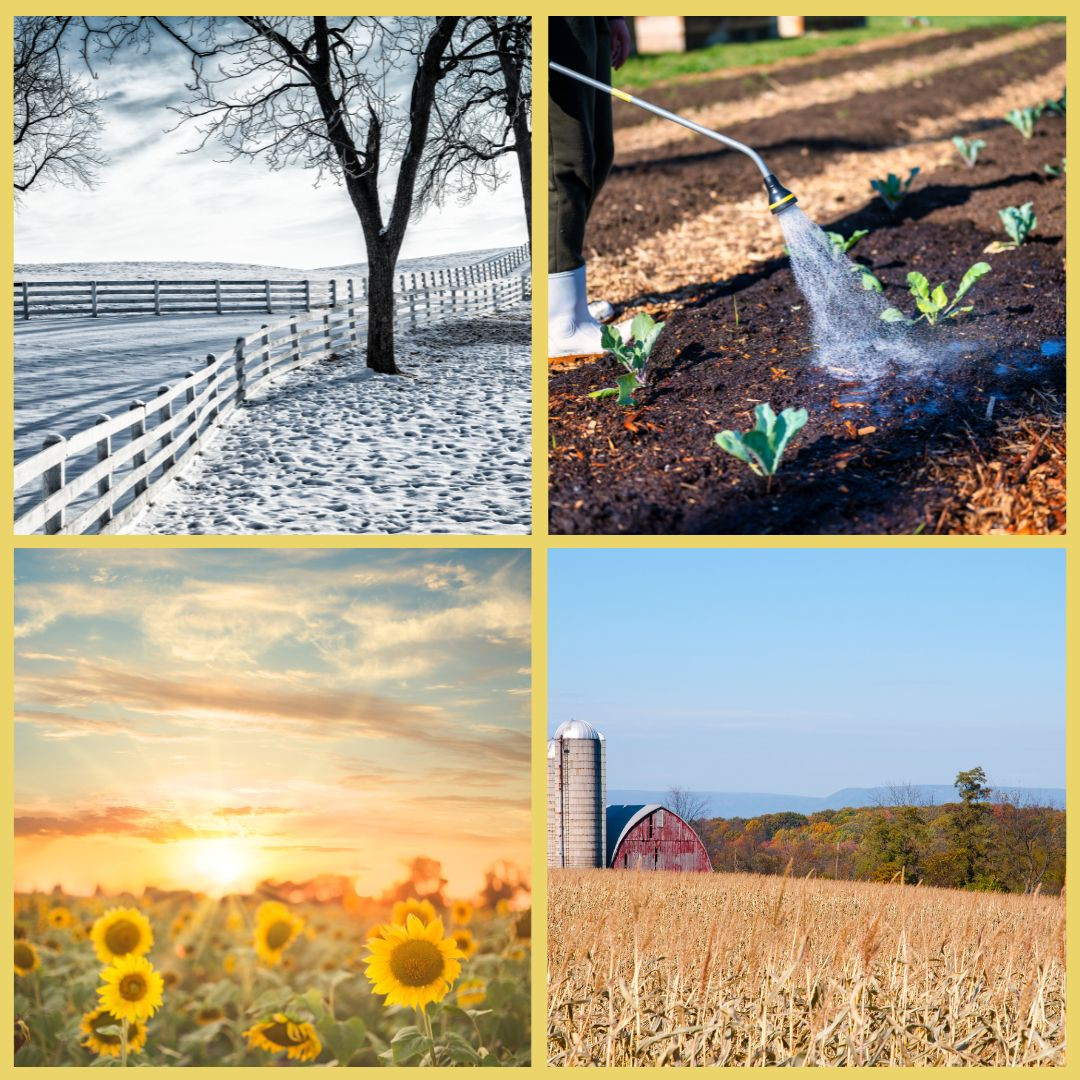
This post may contain affiliate links, which means that I may receive a commission if you make a purchase using these links, with NO additional cost to you.
Farm life moves in seasons, each bringing its own rhythm of challenges and blessings. While others mark their calendars by holidays and vacations, we measure time by calving seasons, planting dates, and harvest windows. It's a different way of life, but one filled with profound meaning when we learn to embrace its natural flow.
Spring arrives with muddy boots and early mornings, the air filled with promise as we help bring new life into the world. Our kitchen windows steam up from endless pots of coffee brewed for our hardworking spouses, while seedlings line every windowsill. It's exhausting but exhilarating to be part of nature's awakening.
Summer stretches before us with long, sun-drenched days. While others plan beach trips, we're orchestrating meals to the fields, tending gardens, and preserving the bounty for winter. But there's magic in those evening moments – watching the sunset paint the sky while the day's work winds down, feeling the satisfaction of another day well-lived.
Fall brings harvest season, when time seems to speed up and slow down all at once. The pressure is intense, but there's beauty in watching the combines move across golden fields, knowing that all the year's hard work is coming to fruition. This is when our strength really shines – in our ability to keep everything and everyone moving forward.
Winter offers a different pace, though farm life never truly stops. It's time for planning, maintenance, and catching up on all those indoor projects we've set aside. These quieter days give us space to reflect and prepare for the cycle to begin again.
Here's what I've learned: each season has its purpose. The busy times teach us resilience, while the slower periods allow us to recharge. I used to try and run at full speed all year long, and I found out it’s not sustainable. It is a good way to burn yourself out.
Find your own traditions and pace within each season – maybe it's having the first cup of coffee on the porch in spring, or always making your grandmother's pickle recipe in summer. These small rituals become anchors in the constantly changing flow of farm life.
Remember, you're not alone. Generations of farm wives before us have watched these same seasons pass and found their own ways to thrive. We're part of a proud tradition of women who understand that farming isn't just a job – it's a way of life.
As I've grown as an entrepreneur, mom, gardener, and livestock owner, I struggled to find a planner that met my needs and kept me organized. So, I MADE MY OWN. You can look at it on the link below and buy it on Amazon.
Don't want the whole calendar part? I got you! I pulled the gardening and animal care pages out and put them in a book all their own.
Wanting a community to lean into? Join the FREE Thriving Through Farm Life: Wife’s Support Network! In our community, we embrace the challenges of farm life and provide a supportive space for wives facing the complexities of managing a family farm. Whether you're navigating financial pressures, day-to-day operations, or seeking ways to create a thriving home, we're here for you. Explore garden and preservation tips for cultivating your oasis, share insights on animal care, and discover practical family budgeting strategies. Together, let's grow through challenges, flourish authentically, and sow the seeds for a resilient and thriving farm life. Join us on this journey of resilience and abundance!
Starting a garden doesn't have to be hard! I gathered all the tips I've learned over my gardening seasons and made them into a simple course to jump-start your gardening life.
I've had 3 very different pregnancies. After the first traumatic birth, I learned how to care for my body naturally preventing common pregnancy and birth problems before they arise. This quick course will give you the tools you need to have a natural healthy pregnancy, labor, and delivery. My first pregnancy I had a normal western medicine pregnancy. My second? I flipped to completely natural, no medicine. Bonus: Preventing Preeclampsia Without Aspirin & Healing from Birth Trauma
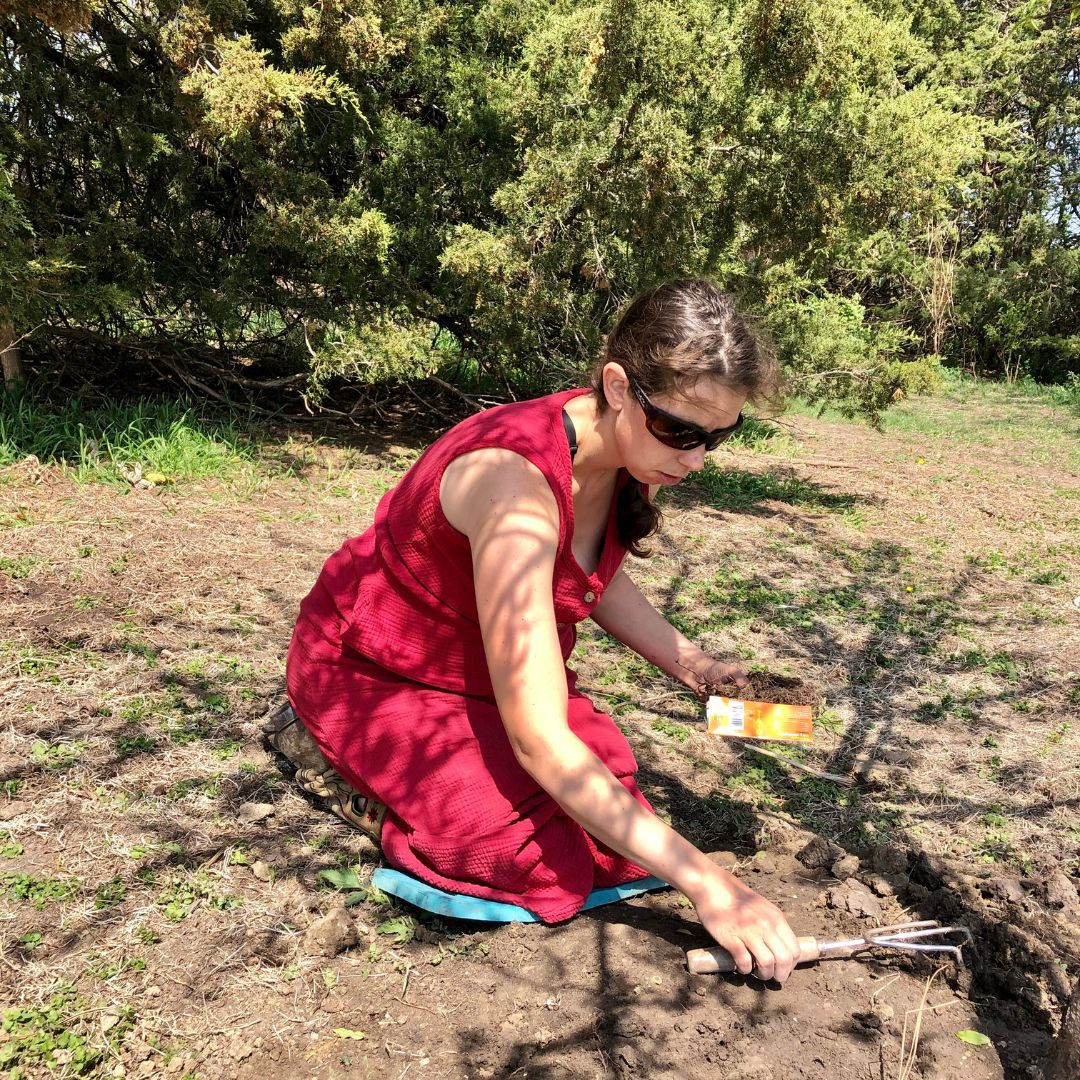
This post may contain affiliate links, which means that I may receive a commission if you make a purchase using these links, with NO additional cost to you.
Homesteading is an adventure in itself. Motherhood is another adventure. Put both together and you will have a grand adventure. That grand adventure, however, can easily turn into overwhelm if you’re not careful.
So how do you keep your homestead going, as you prepare to welcome your newest bundle of joy? With my last child I finally figured it out and I started in my second trimester getting ready.
First plan ahead. There is no such thing as planning too far ahead. After you give birth plan to give yourself 6 weeks of rest. Not joking. It seems excessive, but it will take that long for your body to fully heal from pregnancy and birth.
In that time, you, your family, and your critters will have to eat. Preparing ahead looks a lot like making freezer meals for you and your family. Make sure you have 2 months of feed stored for the animals. Make a list of quick meals you can make that everyone likes, so you don’t have to think. These are both steps you can be working on in your second trimester when you have the energy.
Start implementing systems to make your chores easier. Do you know how much feed is gone through in a day or week? Can you switch to self-feeders? Do you have enough water space to last 24 hours? Are you feeding twice a day? Can you switch to once a day? Do you have to water every day or is there a way to implement timers? Make the changes early so you can adapt if needed and your animals are ready.
In the third trimester, start thinking and asking who you can have to help you postpartum. Write down in detail what you do for chores. For me my daily chores were split between 3 people. My husband let the birds out and locked them in at night. Another friend did all the animal chores. Another friend took care of what was left of the garden.
Do you have other kids to take care of? Find someone to help you for the first week for sure. I was blessed to have my mom come stay with us for a week to help after each kid was born. After that, she still came back (we live 20 minutes apart) once a week to play with the other kids. My mother-in-law watched the kids for a day. When the last baby was born, it was harvest time, so there was lots of tractor and combine rides for the older two as well so I could rest and heal.
Did it seem excessive? Yes, but I will tell you it was my best postpartum yet for healing. And by that time, I had a large garden, chickens, ducks, turkeys, geese, horses, dogs, cats, and maybe a bottle calf. I was also running multiple business at the time. I scheduled things out so there was minimal I had to do for a good month.
Adding a baby to the homestead doesn’t have to make everything crazy. With the right planning your homestead can keep going, while you take your time to rest as well.
As I've grown in my journey as an entrepreneur, mom, gardener, and livestock owner, I struggled to find a planner that met my needs and kept me organized. So, I MADE MY OWN. You can look at it on the link below and buy it on amazon below.
Don't want the whole calendar part? I got you! I pulled the gardening and animal care pages out and put them in a book all their own.
Wanting a community to lean into? Join the FREE Helping Your Family Homestead for Food group! This community is for the Mommas, looking to stay home and raise their kids, but unsure how to keep everyone fed and make ends meet. I share tips from my journey from the office to half the income and feeding my family from home, while maintaining good nourishing food. Tips include gardening, bulk buying, caning/preserving, livestock, homesteading, and home remedies. Your family is precious, and this group is to help you gain the knowledge and tools to keep your family well and not reliant on outside professionals. Remedies and tips are easy and simple for the busy momma, time is precious after all, including pregnancy, birth, young kids, and illness. Trust your Momma gut again! This community offers the resources + community you need to help get started on your journey and prepare for whatever future you envision.
Starting to garden doesn't have to be hard! I gathered all the tips I've learned over my gardening learning curve and made them into a simple course to jump start your gardening your life.
Supporting Your Family Naturally from the Inside Out community!! This community is for Mommas, looking to Support Your Family from Nature for Wellness. Tips range from nutrition, herbals, detoxing, natural cleaning, and essential oils. Basically, all the things I’ve learned slowly over the past 5+ years of my journey. We have moved off Facebook, to better serve our community and be able to discuss openly options for providing for your family in the best way possible.
Join the FREE Community
Join the FREE Community
I've had 3 very different pregnancies. After the first traumatic birth, I learned better and how to care for my body naturally and prevent common pregnancy and birth problems before they arise. This quick course will get you the tools you need to have a naturally healthy pregnancy, labor, and delivery. My first pregnancy I had a normal western medicine all the things pregnancy. My second? I flipped to completely natural, no medicine. Bonus: Preventing Preeclampsia Without the Aspirin & Healing from Birth Trauma
For more on wellness tips click here:
For more on homesteading on your budget click here:
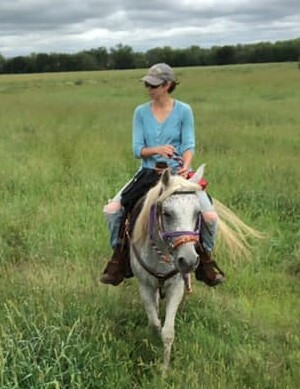
This post may contain affiliate links, which means that I may receive a commission if you make a purchase using these links, with NO additional cost to you.
I did not start my journey intending to dive into the homesteading lifestyle. I thought that was 40+ acres of grass to run my animals on. I had 3.4 acres to work with in the middle of crop country. I just wanted to be able to feed my family.
I grew up on the farm and remember my grandma growing a beautiful garden and my mom canning every summer. My mom, try as she may, has never had a green thumb. When I was first married, I didn’t even grow a garden for the first couple years. We were both still in college and traveling back and forth between school and his family farm. We had my 2 horses, 1 dog, and jobs. I was working 45 minutes away from home, while he worked on the family farm.
When we moved home in 2015, he grew the first garden. A very rough looking sweetcorn patch. I had some herbs in pots up by the house. The following year, we got a fence up, because of rabbits, and I had a small garden, of tomatoes, cucumbers, and peppers. The things I remember my mom trying to grow.
We actually debated the size of the garden. I wanted it smaller and a bigger fire pit area, he thought it should be bigger. Fun fact, he was right. 2-3 years later, my oldest daughter and I were moving the fire pit brick by brick and making the garden bigger.
In 2019 I was pregnant with my son and looking at the cost of what daycare for 2 would cost. I was also moving into a season where I no longer liked being away from my family so much. I loved my job but seeing my child for 3-4 hours every weekday wasn’t cutting it. The only problem was, my job was providing insurance, and groceries. We were using my husband’s income for savings and home improvements.
No matter how I ran the numbers, I couldn’t continue to work and still buy gas to get there and groceries to feed my family. I ran the numbers with just my husband’s income, what insurance options we found, and no daycare, it was going to be tight, but do able. I told my boss I wouldn’t be back after I had my son.
Now how to make the grocery bill smaller. Then I remembered my grandma’s garden and stories of great grandma’s garden. They grew everything! So, I dug in over winter. Looked at what my family was eating vegetable wise and figured out how to grow it. Every year my garden has expanded in space and variety.
I learned how to preserve what I grew and how to cook with whole food ingredients, eliminating all the boxed dinners. 2019 also brought a new frontiers of food allergies and learning to cook without gluten and dairy.
We were fortunate to be able to get ½ a beef every year with my husband’s job. 2020 I bought my first chickens. 2021 brought guineas, ducks, and turkeys. 2022 came the geese and honeybees. In 2022 I also learned how to butcher chickens.
I started a poly culture orchard in 2021 as well, to raise some of our own fruit as well. The advantage of the poly culture orchard is once it is established, it takes care of itself with very little maintenance and care.
This year, 2023, we added our milk cow and a small greenhouse to learn in.
Next year, 2024, were planning on adding pigs.
Today, we raise 95% of our own protein and 70% of our own vegetables. The orchard is still maturing but will one day produce 50% of our fruits.
Our family is now 5 strong. I spend maybe $300/month on groceries. Some months we trade for groceries. Yes, it would be nice to spend more on groceries, but we’re not able to yet. However, we eat well and won’t starve either.
I started with a simple garden but grew as I had the capacity and the need for another food category. I started small and added as I got comfortable with what was already here.
As I've grown in my journey as an entrepreneur, mom, gardener, and livestock owner, I struggled to find a planner that met my needs and kept me organized. So, I MADE MY OWN. You can look at it on the link below and buy it on amazon below.
Don't want the whole calendar part? I got you! I pulled the gardening and animal care pages out and put them in a book all their own.
Wanting a community to lean into? Join the FREE Helping Your Family Homestead for Food group! This community is for the Mommas, looking to stay home and raise their kids, but unsure how to keep everyone fed and make ends meet. I share tips from my journey from the office to half the income and feeding my family from home, while maintaining good nourishing food. Tips include gardening, bulk buying, caning/preserving, livestock, homesteading, and home remedies. Your family is precious, and this group is to help you gain the knowledge and tools to keep your family well and not reliant on outside professionals. Remedies and tips are easy and simple for the busy momma, time is precious after all, including pregnancy, birth, young kids, and illness. Trust your Momma gut again! This community offers the resources + community you need to help get started on your journey and prepare for whatever future you envision.
Starting to garden doesn't have to be hard! I gathered all the tips I've learned over my gardening learning curve and made them into a simple course to jump start your gardening your life.
Supporting Your Family Naturally from the Inside Out community!! This community is for Mommas, looking to Support Your Family from Nature for Wellness. Tips range from nutrition, herbals, detoxing, natural cleaning, and essential oils. Basically, all the things I’ve learned slowly over the past 5+ years of my journey. We have moved off Facebook, to better serve our community and be able to discuss openly options for providing for your family in the best way possible.
Join the FREE Community
Join the FREE Community
I've had 3 very different pregnancies. After the first traumatic birth, I learned better and how to care for my body naturally and prevent common pregnancy and birth problems before they arise. This quick course will get you the tools you need to have a naturally healthy pregnancy, labor, and delivery. My first pregnancy I had a normal western medicine all the things pregnancy. My second? I flipped to completely natural, no medicine. Bonus: Preventing Preeclampsia Without the Aspirin & Healing from Birth Trauma
For more on wellness tips click here:
For more on homesteading on your budget click here:
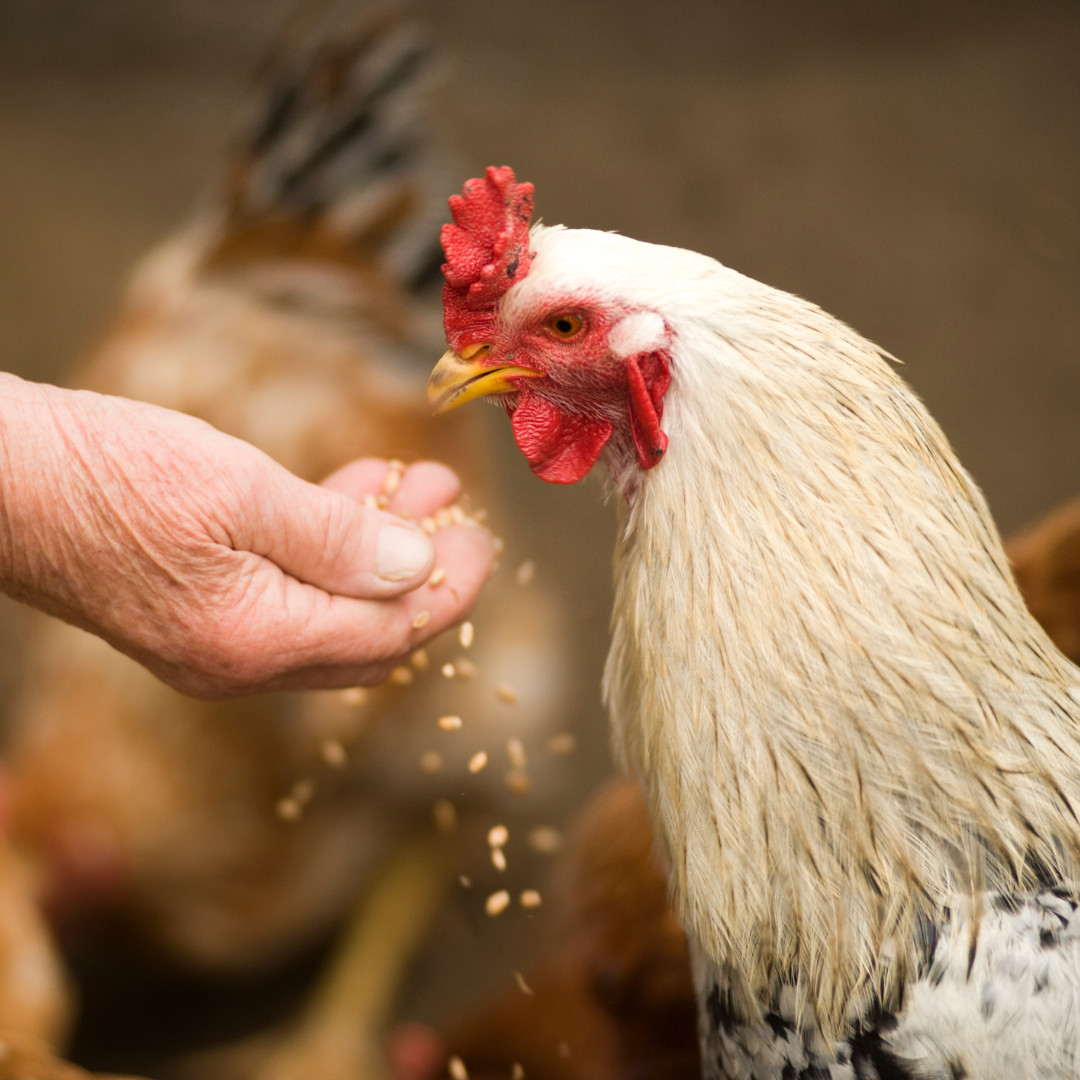
This post may contain affiliate links, which means that I may receive a commission if you make a purchase using these links, with NO additional cost to you.
What’s a homestead without poultry? Poultry is one of those gateway animals to the homesteader. They are a source of protein, bug control, and compost turners. As with any animal, however, there are a few common problems that can happen. Below I’ll describe the common problems and solutions including pasty butt, egg breaking, pecking each other, and not laying.
With baby poultry the big thing to watch for is pasty butt. Simply put, this is where the poop starts to build up and then covers the exit. Simply take a damp cloth, soak the butt and wipe the poop away. For other poultry starting tips, check out my previous blog on The Basics of Raising Baby Poultry.
In mature poultry, there are a few common problems that arise including not laying eggs, egg breaking, and pecking on each other.
First up, pecking on each other. Pecking often starts for 2 main reasons. Stress/boredom and nutrient deficiency. This is when one hen starts to peck another hen or rooster. This is not just the move over peck. This is the nonstop pecking feathers out, getting to the flesh and eating another alive.
If the birds are stressed or bored, this is easy to remedy. Give the birds more space. Close confinement is stressful for poultry. You can also give them things to do if they are in an enclosure.
Nutrient deficiency reasons for pecking are primarily protein shortage but can also be sodium or phosphorus. If you are using a store mix, check the label for how much protein is in the mix. Make sure you have enough bunk space for everyone to eat. If you are mixing your own feed, look at what is left in the bunk. Are they eating the protein? If not, you may need to change protein sources. If they are you may need to up the protein.
The second common issue for beginning poultry is egg breaking. This usually doesn’t happen unless confinement is closed and the hens get bored, like in a 5-day -30 weather stretch when no one leaves the coop. Once it starts, it can be hard to break. Pick up eggs frequently, make sure the hens have extra calcium available, so eggs stay strong. Getting a hard fake egg can help break the habit once it starts.
The final common issue is not laying eggs. This is a multifaceted problem honestly. There is an age, environmental, nutritional, and seasonal factors. If you got chicks in the spring, they will quite often lay that first winter, as the hens become 2 & 3, they are not as likely to lay all winter.
Some breeds are more susceptible to stress than others and the first thing that goes as soon as stress is involved is laying eggs. Eggs are by nature a seasonal food. We have selected chicken breeds to lay better with less light (aka winter months).
You can hang a light in the coop during the winter and keep getting eggs, but a word of caution. You have to let the hens molt or you will run your hens down to nothing. Molting is when the hens naturally loose feathers and put on the thick feathers for winter. Many you won’t even notice molting, others look like they were hit by a truck. Hens that have lost feathers on their back from roosters breeding will replace them during the molt. After the molt feel free to leave the light on for a time in the coop. A timer is best, so they do have some darkness to keep the proper circadian rhythm.
Nutritionally, you can add more protein and oil in the winter months to help support the hens. I do this with my flock as the extra bugs they were eating for protein are no longer available. High oil seeds, like sunflowers and whole corn help with energy in the winter.
Also, it takes a lot of calcium to make an egg. If the hens don’t have enough calcium, they will not lay. Add a self-feeder of oyster shells or dried and crushed eggshells. The hens will self-regulate. In the fall/winter after all nutrients have been replenished, hens will often start laying again.
Like all animals’ poultry comes with their own set of common problems. The good news is they are easily corrected.
As I've grown in my journey as an entrepreneur, mom, gardener, and livestock owner, I struggled to find a planner that met my needs and kept me organized. So, I MADE MY OWN. You can look at it on the link below and buy it on amazon below.
Don't want the whole calendar part? I got you! I pulled the gardening and animal care pages out and put them in a book all their own.
Wanting a community to lean into? Join the FREE Helping Your Family Homestead for Food group! This community is for the Mommas, looking to stay home and raise their kids, but unsure how to keep everyone fed and make ends meet. I share tips from my journey from the office to half the income and feeding my family from home, while maintaining good nourishing food. Tips include gardening, bulk buying, caning/preserving, livestock, homesteading, and home remedies. Your family is precious, and this group is to help you gain the knowledge and tools to keep your family well and not reliant on outside professionals. Remedies and tips are easy and simple for the busy momma, time is precious after all, including pregnancy, birth, young kids, and illness. Trust your Momma gut again! This community offers the resources + community you need to help get started on your journey and prepare for whatever future you envision.
Starting to garden doesn't have to be hard! I gathered all the tips I've learned over my gardening learning curve and made them into a simple course to jump start your gardening your life.
Supporting Your Family Naturally from the Inside Out community!! This community is for Mommas, looking to Support Your Family from Nature for Wellness. Tips range from nutrition, herbals, detoxing, natural cleaning, and essential oils. Basically, all the things I’ve learned slowly over the past 5+ years of my journey. We have moved off Facebook, to better serve our community and be able to discuss openly options for providing for your family in the best way possible.
Join the FREE Community
Join the FREE Community
I've had 3 very different pregnancies. After the first traumatic birth, I learned better and how to care for my body naturally and prevent common pregnancy and birth problems before they arise. This quick course will get you the tools you need to have a naturally healthy pregnancy, labor, and delivery. My first pregnancy I had a normal western medicine all the things pregnancy. My second? I flipped to completely natural, no medicine. Bonus: Preventing Preeclampsia Without the Aspirin & Healing from Birth Trauma
Click here to get the stories straight to your email:
For more on wellness tips click here:
For more on homesteading on your budget click here:
For more simple DIY updates click here:
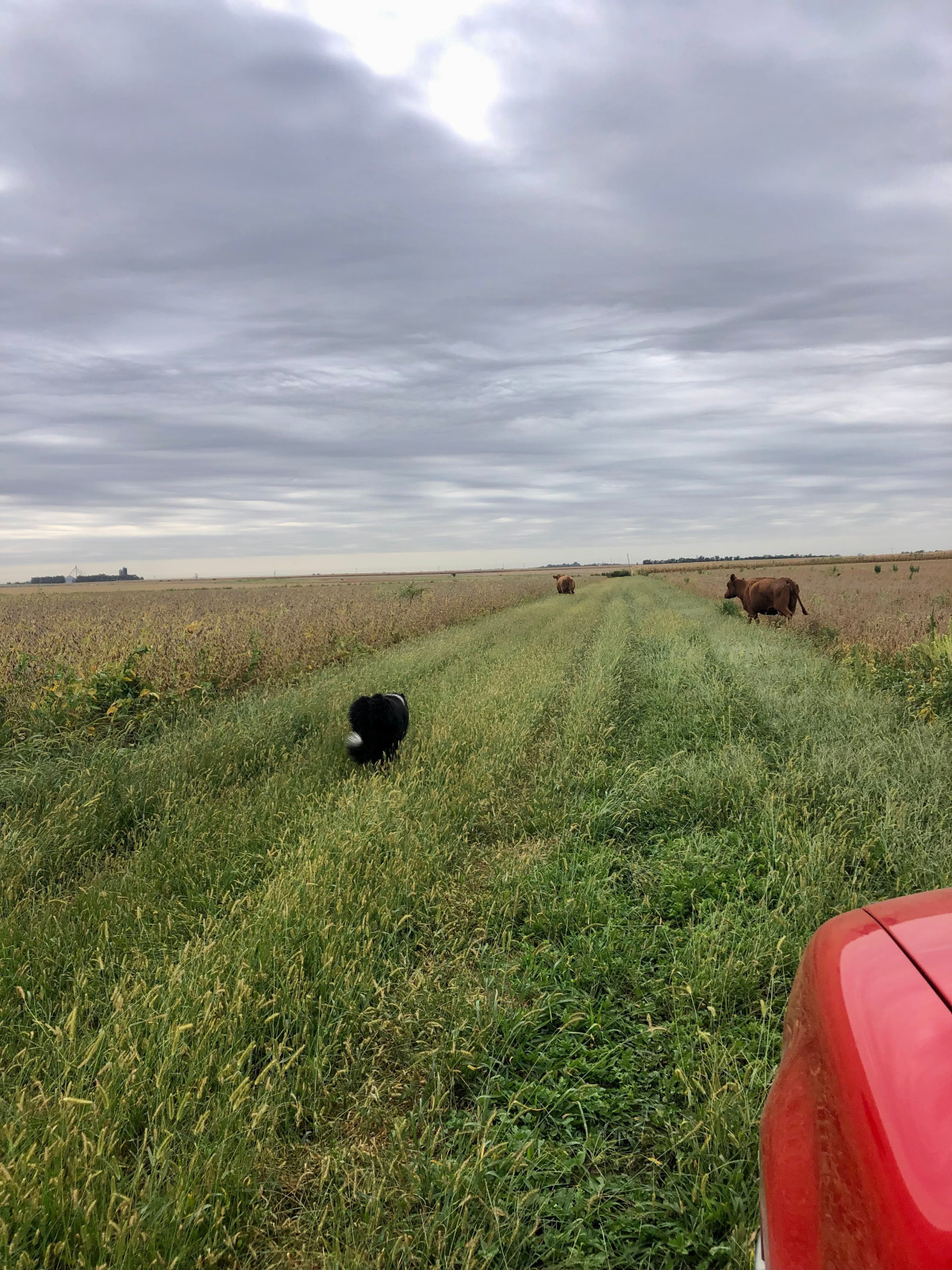
This post may contain affiliate links, which means that I may receive a commission if you make a purchase using these links, with NO additional cost to you.
About any farm at some point has a dog or dogs. A dog just goes with a farm or homestead. They are companions, guards, and working partners. They bring much more than themselves to the farm. However, as with anything on the farm, they can also have common problems.
The first is cuts. Dogs, like kids who run on the farm, are bound to get cuts at some point. The truth is most of the cuts you won’t notice and won’t become a problem. If they are more than a surface scratch but less than needing stitches, there are a few things you can do to help speed healing.
If the dog has long hair trim or shave around the cut. This allows it to drain and prevents the hair to matting up in the cut as it heals. When the hair mats up in the cut there is an increased risk for maggot infection. After the hair is clear, make sure the cut is clean. By washing with clean water, then applying disinfectant. Gentle iodine or witch hazel works well here. I then apply my calendula salve to the wound and in a few days, it usually heals up.
If you are unsure of if the cut needs stitches or not, be sure to call your veterinarian and ask. Most rural veterinarians are happy to teach you what to look for in cuts and how to clean them.
Occasionally you don’t catch a cut and it does become an issue in the form of an abscess. This isn’t an emergency. Shave the abscess and the area below closely. Next using a large needle (16 gu or less), puncture the abscess at the bottom and allow to drain. If it is a new abscess, it will drain liquid. If it is older, it will be white/yellow and thick.
If it is not draining, you may need to get a scalpel and cut into the abscess at the bottom. An abscess that does not drain are usually older and have thick puss in them that will not drain through a needle. Once the draining has stopped, gently squeeze the top of the abscess and massage down to work out the rest of the infection.
Then take gentle iodine and dilute in clean water to the color of tea. Take a large syringe (35 cc or bigger is best), and slowly inject the solution into the abscess through the hole. Gently massage and then allow to drain. Repeat 2-3 times. Allow the abscess to remain open and drain. Check daily to make sure it stays open, removing any crust from the opening.
If you are unsure of draining an abscess on your own, be sure to call your veterinarian and ask. Most rural veterinarians are happy to teach you to drain and clean an abscess.
The most common problem when you first get a dog on the farm is the dog not staying home. Most can be solved by simply kenneling or tying your dog up for a week or so when you first bring him home to teach him where home is. When you are in the yard, allow them out and about the farm with you. Some dogs naturally have a bigger territory range than others, so you may need to consider that when selecting a dog.
If they are older and know where home is but persists in exploring the neighborhood while you’re not looking, you may need to invest in some kind of fence or collar. I don’t like having my dogs tied up or kenneled all the time, but the cattle dogs will not leave my yard birds alone. So, I invested in a wireless invisible fence for them with the PetSafe system. This allows them to stay up by the house freely but allow my yard birds to free range peacefully.
My LGD has a much larger territory naturally. Our yard he believes is the center of his territory not the edge. This means he is across the road or on it quite frequently once his tracking collar broke, or we left and were not able to buzz him back into the yard. We are trying a new system and have had better success. The collar has a larger range and can communicate with my phone.
LGD are very intelligent, but also very stubborn. Now that the new collar is on, he is staying off the road and accepts that he is not allowed on the road. We have allowed him a larger territory into the field behind our house not that he is fully grown and bigger than most coyotes (the biggest predator threat here). If you have a dog which you want to roam the entire property, but also stay home, you will need to invest in a gps hunting tracking/training collar.
Farm dogs are very much worth it and issues with them are few. The common ones are fairly easy to treat or re-train too. Have a happy time with your 4-legged partner.
As I've grown in my journey as an entrepreneur, mom, gardener, and livestock owner, I struggled to find a planner that met my needs and kept me organized. So, I MADE MY OWN. You can look at it on the link below and buy it on amazon below.
Don't want the whole calendar part? I got you! I pulled the gardening and animal care pages out and put them in a book all their own.
Wanting a community to lean into? Join the FREE Helping Your Family Homestead for Food group! This community is for the Mommas, looking to stay home and raise their kids, but unsure how to keep everyone fed and make ends meet. I share tips from my journey from the office to half the income and feeding my family from home, while maintaining good nourishing food. Tips include gardening, bulk buying, caning/preserving, livestock, homesteading, and home remedies. Your family is precious, and this group is to help you gain the knowledge and tools to keep your family well and not reliant on outside professionals. Remedies and tips are easy and simple for the busy momma, time is precious after all, including pregnancy, birth, young kids, and illness. Trust your Momma gut again! This community offers the resources + community you need to help get started on your journey and prepare for whatever future you envision.
Starting to garden doesn't have to be hard! I gathered all the tips I've learned over my gardening learning curve and made them into a simple course to jump start your gardening your life.
Supporting Your Family Naturally from the Inside Out community!! This community is for Mommas, looking to Support Your Family from Nature for Wellness. Tips range from nutrition, herbals, detoxing, natural cleaning, and essential oils. Basically, all the things I’ve learned slowly over the past 5+ years of my journey. We have moved off Facebook, to better serve our community and be able to discuss openly options for providing for your family in the best way possible.
Join the FREE Community
Join the FREE Community
I've had 3 very different pregnancies. After the first traumatic birth, I learned better and how to care for my body naturally and prevent common pregnancy and birth problems before they arise. This quick course will get you the tools you need to have a naturally healthy pregnancy, labor, and delivery. My first pregnancy I had a normal western medicine all the things pregnancy. My second? I flipped to completely natural, no medicine. Bonus: Preventing Preeclampsia Without the Aspirin & Healing from Birth Trauma
Click here to get the stories straight to your email:
For more on wellness tips click here:
For more on homesteading on your budget click here:
For more simple DIY updates click here:
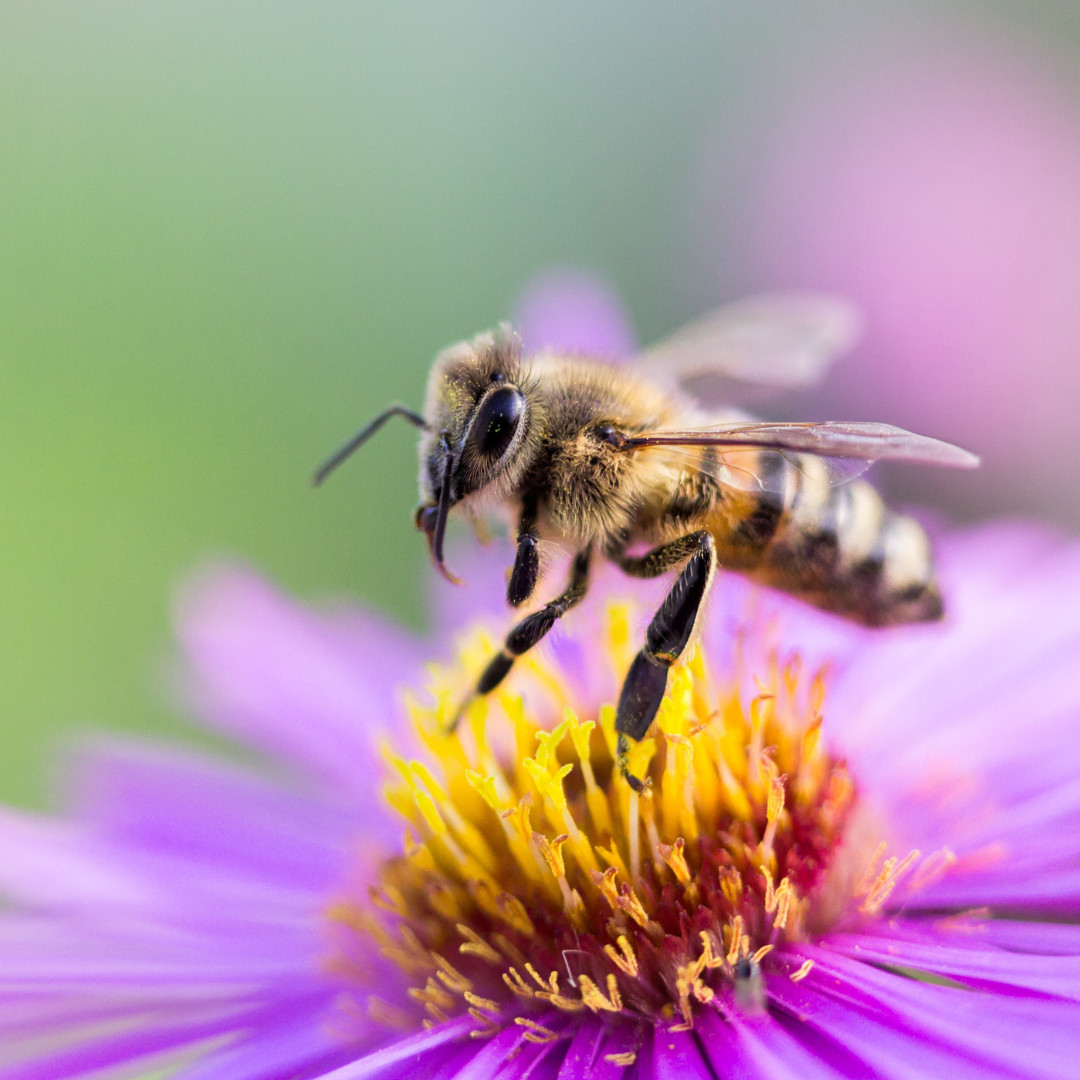
This post may contain affiliate links, which means that I may receive a commission if you make a purchase using these links, with NO additional cost to you.
At some point in your journey growing your own food, many people get bees. Why?!? Because bees are another livestock (like chickens) that can be kept no matter where you live, city or country. Bees also help your garden with pollination, helping to boost your garden crop and giving you honey. There are a few common problems that beginner beekeepers will often have. More on advanced problems later.
First when you are considering getting bees, find a local beekeeper group or individual who can help you when needed. Google is helpful, but nothing beats a person in person to help you go through and inspect your hive at least once. They are also invaluable when you do have problems and need to trouble shoot. I have 3 local beekeepers who help me and mentor me as I learn and grow.
The smoker problem. You can’t keep the smoker smoking. Me either honestly. I get distracted with the bees and forget to keep puffing the billow. I don’t’ even take it out to the hives anymore. Here’s my best advice. Go slow and control your breath. Yes, bees sting. Yes, they hurt even through the suit. But by using slow movements, and continuing to breath, the bees remain less aggressive.
By continuing to breathe slowly, you don’t emit as much CO2. Bees pick up on the CO2 and will become more aggressive. Sudden movements (like dropping a frame) startle the bees and they become aggressive to defend their hive. Sometimes hives have a bad day. My #1 hive this past weekend was in a bad mood and very aggressive (not normal for them). I moved slowly, breathed slowly, and they still were out to sting. I opened the hive and walked away for a bit. Usually, they will calm down after this and I can continue inspecting the hive. Not that day. I checked the frames from the top and found one with brood instead of honey. The pattern looked good, and I called the inspection good for the week. I only did this because I had just checked the hive thoroughly the week before and saw the queen along with a good brood pattern and low mite count. If I needed to inspect frame by frame again, I would probably go get the smoker and try to calm them that way.
If this hive continues to be aggressive I will requeen them. Why? Because all bees go back to the queen in the hive. Historically this hive is usually calm and easy to work, so that is not my first step.
Missing queen. As a beginner beekeeper, finding the queen can be difficult. This is where having an experienced beekeeper to go through the hive with you can help. Then mark the queen so she’s easier to find later. When purchasing a queen often they will mark them for you. What do you do when you can’t find the queen in the hive?
First look at the brood. Are there eggs? Are the eggs in the middle of the cells or are there multiple eggs in a cell? How is the pattern? Are the eggs grouped or all over the frames? This is hands down my biggest clue to if the queen is still present for a beginner. If there are eggs and larvae of varying ages, the queen is around somewhere. Keep checking weekly and keep checking the brood pattern.
True story, I took me over a month before I saw and was able to mark the queen in my #11 hive this year. This was a hive that I have had multiple problems with keeping a queen. But I stopped adding brood from the #1 hive when I started noticing eggs in the brood frames. The eggs were in the middle most of the time and only 1 egg per cell. This told me the queen was around, but very good at hiding. If there were multiple eggs per cell or the pattern was off, or eggs not centered, I would have suspected a worker bee laying.
Beekeeping is fun and rewarding. Be sure to tap into resources and continue learning as you raise bees. You can never know it all beforehand. Just jump in and learn on the go.
A few of my favorite online resources
Two Bees in a Podcast by UF/IFAS Honey Bee Lab
Honey Bee Obscura Podcast with Kim Flottum & Tim Tew
Bob Binnie YouTube channel
As I've grown in my journey as an entrepreneur, mom, gardener, and livestock owner, I struggled to find a planner that met my needs and kept me organized. So, I MADE MY OWN. You can look at it on the link below and buy it on amazon below.
Don't want the whole calendar part? I got you! I pulled the gardening and animal care pages out and put them in a book all their own.
Wanting a community to lean into? Join the FREE Helping Your Family Homestead for Food group! This community is for the Mommas, looking to stay home and raise their kids, but unsure how to keep everyone fed and make ends meet. I share tips from my journey from the office to half the income and feeding my family from home, while maintaining good nourishing food. Tips include gardening, bulk buying, caning/preserving, livestock, homesteading, and home remedies. Your family is precious, and this group is to help you gain the knowledge and tools to keep your family well and not reliant on outside professionals. Remedies and tips are easy and simple for the busy momma, time is precious after all, including pregnancy, birth, young kids, and illness. Trust your Momma gut again! This community offers the resources + community you need to help get started on your journey and prepare for whatever future you envision.
Starting to garden doesn't have to be hard! I gathered all the tips I've learned over my gardening learning curve and made them into a simple course to jump start your gardening your life.
Supporting Your Family Naturally from the Inside Out community!! This community is for Mommas, looking to Support Your Family from Nature for Wellness. Tips range from nutrition, herbals, detoxing, natural cleaning, and essential oils. Basically, all the things I’ve learned slowly over the past 5+ years of my journey. We have moved off Facebook, to better serve our community and be able to discuss openly options for providing for your family in the best way possible.
Join the FREE Community
Join the FREE Community
I've had 3 very different pregnancies. After the first traumatic birth, I learned better and how to care for my body naturally and prevent common pregnancy and birth problems before they arise. This quick course will get you the tools you need to have a naturally healthy pregnancy, labor, and delivery. My first pregnancy I had a normal western medicine all the things pregnancy. My second? I flipped to completely natural, no medicine. Bonus: Preventing Preeclampsia Without the Aspirin & Healing from Birth Trauma
Click here to get the stories straight to your email:
For more on wellness tips click here:
For more on homesteading on your budget click here:
For more simple DIY updates click here:
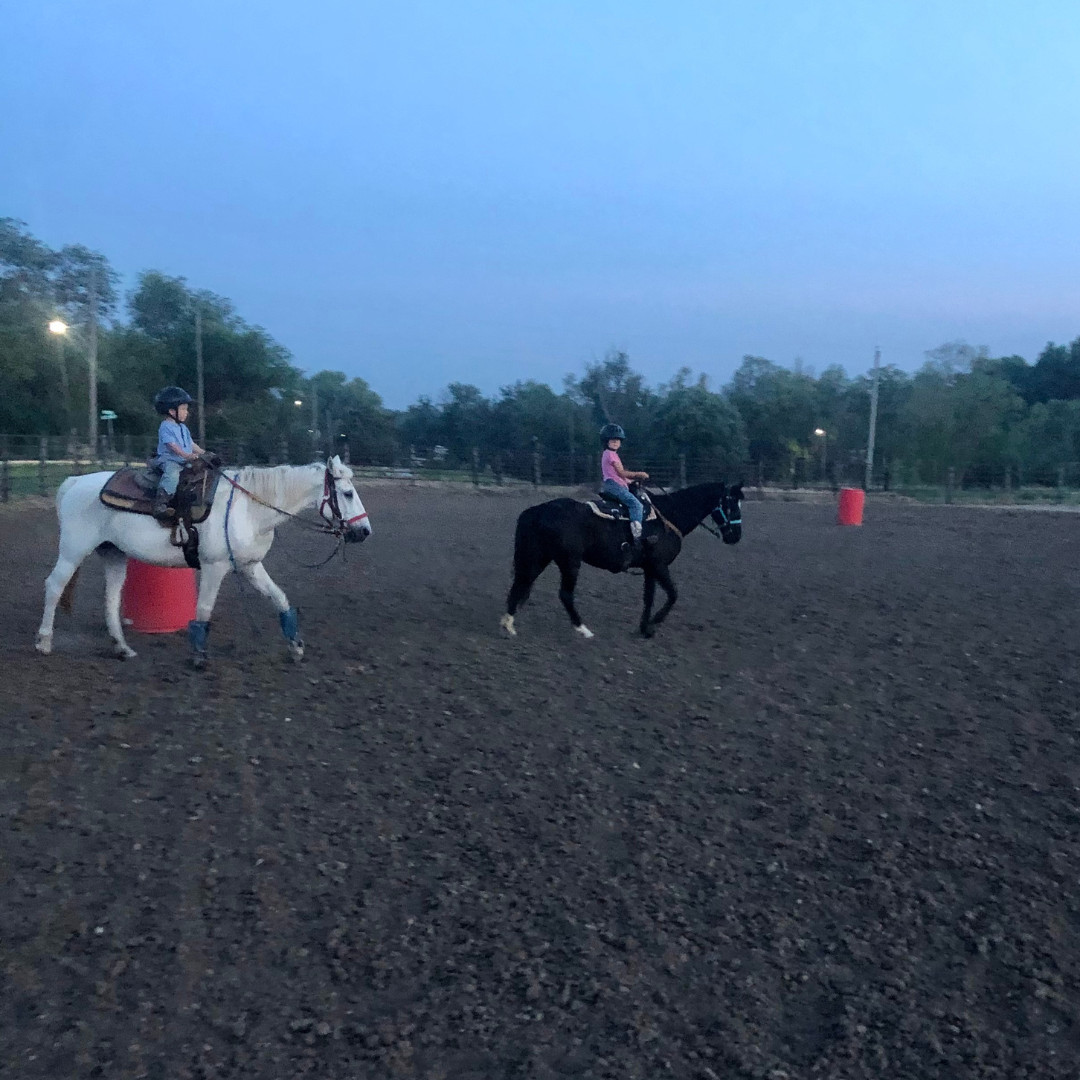
This post may contain affiliate links, which means that I may receive a commission if you make a purchase using these links, with NO additional cost to you.
Horses can be fantastic partners on the farmstead. They can also be a fun hobby. As you select a horse, there are a few things to keep in mind. Are you looking for a working partner or a hobby? Have you paid attention to the resources you have and if they match up with a horse? Are you willing to commit to a horse?
First keep in mind horses are big and powerful animals. Horses demands respect and caution, NOT fear. Yes, you can get a pony or miniature horses if they fit your goals. Comfortable handling horses doesn’t count as only ever trail riding on at a camp or retreat center. Those horses are very well trained and if they are having an off day, they don’t go out on the trail. If you are uncomfortable or inexperienced handling large animals, please seek out a local person who is confident in handling horses to teach you the basics so you can have a successful horse adventure.
Now that you have some experience and some trusted help to guide you if needed, think about your goals for your horse. What do you want to do with them? As a trail riding hobby with friends, working/moving cattle, driving/pulling carts/wagons? A little bit of everything? Knowing how you will use your horse will help you determine where to start looking for your horse. Horses are trained in many different disciplines: trail, ranch, driving, jumping, and even show disciplines: pleasure, reining, etc.
For most disciplines, breed doesn’t really matter. Yes, some breeds are more selected for certain tasks historically, but they are adaptable especially if you’re not in the professional world. For example, Arabians were bred to be long distant runners in a dry environment, with a courageous heart. Yet, I have an Arabian I uses as my all round go to horse, trail riding, fun runs, moving cows and can even pull a small cart. My sister has an ex-racehorse that she turned barrel horse and now trail rides.
If you are looking at doing a lot of heavy wagon or cart pulling, I do recommend going with a draft breed (yes you can also ride them too). Draft breeds are big and strong selected for pulling strength. Common breeds for draft are the Clydesdale, Belgian, or Gypsy.
Ultimately when you select a horse, try it out first! Groom it, ride it, how do you communicate? Does the horse listen to you or fight you? If it is fighting you now, it will be more at home. Whatever you do as a beginner, do not select a horse based on color, papers, bloodlines, breed, or price. More expensive is not always better, neither is cheaper. Select carefully and you will have a willing and fun partner no matter what you decide to do.
As I've grown in my journey as an entrepreneur, mom, gardener, and livestock owner, I struggled to find a planner that met my needs and kept me organized. So, I MADE MY OWN. You can take a look at it on the link below and buy it on amazon below.
Don't want the whole calendar part? I got you! I pulled the gardening and animal care pages out and put them in a book all their own.
Wanting a community to lean into? Join the FREE Helping Your Family Homestead for Food group! This community is for the Mommas, looking to stay home and raise their kids, but unsure how to keep everyone fed and make ends meet. I share tips from my journey from the office, to half the income and feeding my family from home, while maintaining good nourishing food. Tips include: gardening, bulk buying, caning,/preserving, livestock, homesteading, and home remedies. Your family is precious and this group is to help you gain the knowledge and tools to keep your family well and not reliant on outside professionals. Remedies and tips are easy and simple for the busy momma, time is precious after all, including pregnancy, birth, young kids, and illness. Trust your Momma gut again! This community offers the resources + community you need to help get started on your journey and prepare for whatever future you envision.
Starting to garden doesn't have to be hard! I gathered all the tips I've learned over my gardening learning curve and made them into a simple course to jump start your gardening your life.
Supporting Your Family Naturally From the Inside Out community!! This community is for the Mommas, looking to Support Your Family from Nature for Wellness. Tips range from nutrition, herbals, detoxing, natural cleaning, and essential oils. Basically all the things I’ve learned slowly over the past 5+ years if my journey. We have moved off Facebook, so to better serve our community and be able to discuss openly option for providing for your family in the best way possible.
Join the FREE Community
Join the FREE Community
I've had 3 very different pregnancies. After the first traumatic birth, I learned better and how to care for my body naturally and prevent common pregnancy and birth problems before they arise. This quick course will get you the tools you need to have a naturally healthy pregnancy, labor, and delivery. My first pregnancy I had a normal western medicine all the things pregnancy. My second? I flipped to completely natural, no medicine. Bonus: Preventing Preeclampsia Without the Aspirin & Healing from Birth Trauma
Click here to get the stories straight to your email:
For more on wellness tips click here:
For more on homesteading on your budget click here:
For more simple DIY updates click here:
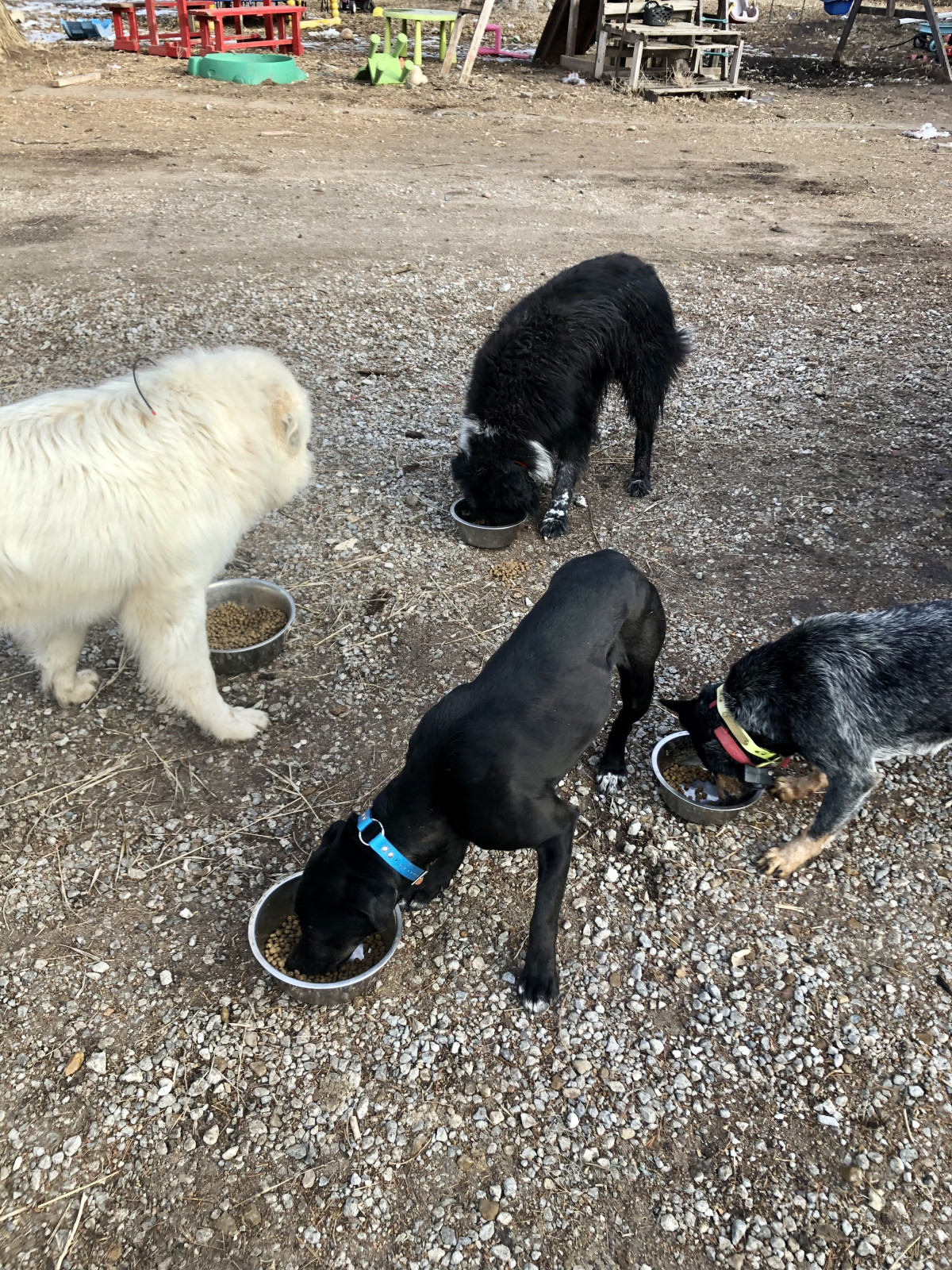
This post may contain affiliate links, which means that I may receive a commission if you make a purchase using these links, with NO additional cost to you.
What is a farm without a dog? It’s like an unspoken rule that if you have a farm or homestead, a dog is needed to complete your home. But how do you find the right one? The glorious thing about dogs is they are wide open with hundreds of choices. There are a few things to consider, but it is truly simple to choose.
First are you looking for a companion, or a dog who will have a job working on the homestead with you? Dogs have been selected over time for different jobs or to fit niches. Jobs on the homestead that dogs can have include Livestock Guardian (LGD) and Herding. Working dogs can also make great companions too.
If you are looking for a dog to fit one of those jobs, you will want to select a breed in that category, FROM actively working parents. This is key, because a LGD raised around livestock with their parents have a head start on their training, as the parents will start training them as soon as they can move. Key breeds to consider here are Anatolian, Pyrenees, and mixes.
If you are looking for a herding partner, check out the herding breeds, and again make sure they are from ACTIVELY WORKING PARENTS. The instinct in puppies from working parents is stronger and therefore easier to train when they come from working parents. Again, they also watch and learn. Popular breeds are the Collie, Border Collie, Australian Shephard, and Red/Blue Heelers.
If you are simply looking for a companion on your farm, you really have no limits. Even a companion dog hanging around will still tend to keep predators at bay as they establish their territory around your home. They may not be strong or driven enough to take on a coyote head on though.
Keep in mind when selecting a companion whether they will be mostly outside or inside and how much brushing/grooming you want to do. When selecting a companion dog, the best way is honestly to let them select you. Find a shelter and start hanging out with the dogs. One will kind of attach to you a bit more than others and the connection is off.
In summary, when choosing a dog for your home, keep in mind if they will be working or companion, mainly hanging out inside or outside. And above all if you can, let them choose you.
As I've grown in my journey as an entrepreneur, mom, gardener, and livestock owner, I struggled to find a planner that met my needs and kept me organized. So, I MADE MY OWN. You can take a look at it on the link below and buy it on amazon below.
Don't want the whole calendar part? I got you! I pulled the gardening and animal care pages out and put them in a book all their own.
Wanting a community to lean into? Join the FREE Helping Your Family Homestead for Food group! This community is for the Mommas, looking to stay home and raise their kids, but unsure how to keep everyone fed and make ends meet. I share tips from my journey from the office, to half the income and feeding my family from home, while maintaining good nourishing food. Tips include: gardening, bulk buying, caning,/preserving, livestock, homesteading, and home remedies. Your family is precious and this group is to help you gain the knowledge and tools to keep your family well and not reliant on outside professionals. Remedies and tips are easy and simple for the busy momma, time is precious after all, including pregnancy, birth, young kids, and illness. Trust your Momma gut again! This community offers the resources + community you need to help get started on your journey and prepare for whatever future you envision.
Starting to garden doesn't have to be hard! I gathered all the tips I've learned over my gardening learning curve and made them into a simple course to jump start your gardening your life.
Supporting Your Family Naturally From the Inside Out community!! This community is for the Mommas, looking to Support Your Family from Nature for Wellness. Tips range from nutrition, herbals, detoxing, natural cleaning, and essential oils. Basically all the things I’ve learned slowly over the past 5+ years if my journey. We have moved off Facebook, so to better serve our community and be able to discuss openly option for providing for your family in the best way possible.
Join the FREE Community
Join the FREE Community
I've had 3 very different pregnancies. After the first traumatic birth, I learned better and how to care for my body naturally and prevent common pregnancy and birth problems before they arise. This quick course will get you the tools you need to have a naturally healthy pregnancy, labor, and delivery. My first pregnancy I had a normal western medicine all the things pregnancy. My second? I flipped to completely natural, no medicine. Bonus: Preventing Preeclampsia Without the Aspirin & Healing from Birth Trauma
Click here to get the stories straight to your email:
For more on wellness tips click here:
For more on homesteading on your budget click here:
For more simple DIY updates click here:
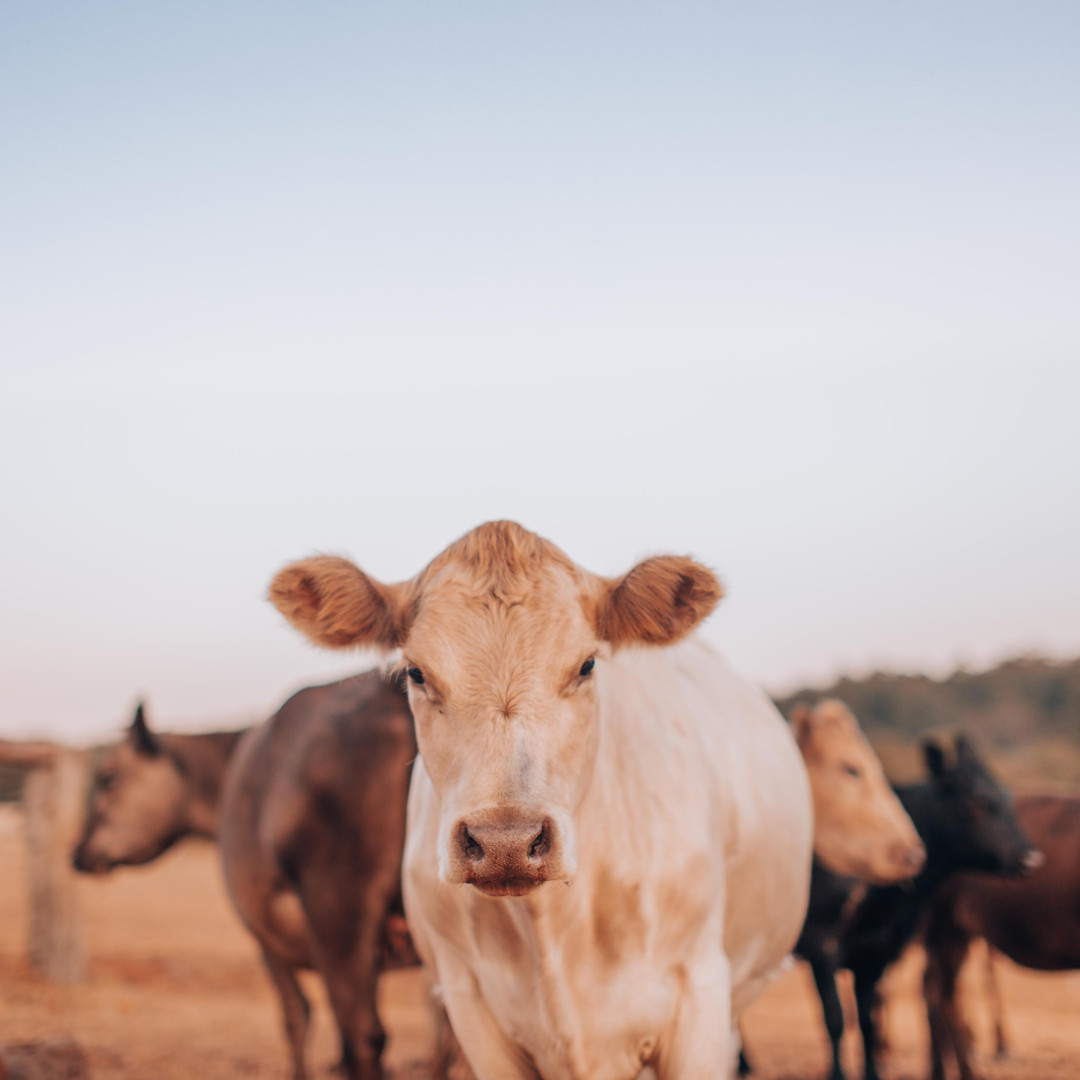
This post may contain affiliate links, which means that I may receive a commission if you make a purchase using these links, with NO additional cost to you.
A cow may not be the first animal to be added to your homestead, but at some point, many do. Cows bring so much to the homestead, it’s hard to not add one eventually. There are a few major differences in breeds to consider when selecting your cows. The biggest difference to consider is your desire for beef or milk. Environment is another factor to consider.
As with any other domesticated animal, humans have selected cattle primarily for beef or milk traits. There are a few breeds that still have both traits and are considered dual purpose.
In general beef breeds are good at growing muscle quickly but not necessarily good at producing extra milk. They produce enough for their calf, but that’s about it. The most popular breeds are Angus, Limousin, Herford, Simmental, Gelbvieh, and Charolais.
Cows considered dairy breeds have been selected for producing milk. They tend to be a little slower growing but can still be used for beef. Popular breeds for milking cows are the Holstein, Brown Swiss, Jersey, and Guernsey. To get milk, the cow must have a calf, so many homesteaders will grow the calf for their own beef, knowing it will take a bit longer.
The few dual purpose breeds still have variations with in the breed. Make sure you check when purchasing how the animal has been selected. Popular dual purpose breeds are the Shorthorn and Dexter.
Another factor to consider is your environment. If you live in a hot and dry environment, you want to make sure you have a cow that can handle the environment. There are breeds that are better suited for heat like the Brahman. There are some breeds that are better suited for poor range as well, like the Corrientes and Longhorn.
Having a cow on the homestead is very rewarding, either a beef or dairy cow. They bring a lot to the homestead for food for your family. Happy selecting!
As I've grown in my journey as an entrepreneur, mom, gardener, and livestock owner, I struggled to find a planner that met my needs and kept me organized. So, I MADE MY OWN. You can take a look at it on the link below and buy it on amazon below.
Don't want the whole calendar part? I got you! I pulled the gardening and animal care pages out and put them in a book all their own.
Wanting a community to lean into? Join the FREE Helping Your Family Homestead for Food group! This community is for the Mommas, looking to stay home and raise their kids, but unsure how to keep everyone fed and make ends meet. I share tips from my journey from the office, to half the income and feeding my family from home, while maintaining good nourishing food. Tips include: gardening, bulk buying, caning,/preserving, livestock, homesteading, and home remedies. Your family is precious and this group is to help you gain the knowledge and tools to keep your family well and not reliant on outside professionals. Remedies and tips are easy and simple for the busy momma, time is precious after all, including pregnancy, birth, young kids, and illness. Trust your Momma gut again! This community offers the resources + community you need to help get started on your journey and prepare for whatever future you envision.
Starting to garden doesn't have to be hard! I gathered all the tips I've learned over my gardening learning curve and made them into a simple course to jump start your gardening your life.
Supporting Your Family Naturally From the Inside Out community!! This community is for the Mommas, looking to Support Your Family from Nature for Wellness. Tips range from nutrition, herbals, detoxing, natural cleaning, and essential oils. Basically all the things I’ve learned slowly over the past 5+ years if my journey. We have moved off Facebook, so to better serve our community and be able to discuss openly option for providing for your family in the best way possible.
Join the FREE Community
Join the FREE Community
I've had 3 very different pregnancies. After the first traumatic birth, I learned better and how to care for my body naturally and prevent common pregnancy and birth problems before they arise. This quick course will get you the tools you need to have a naturally healthy pregnancy, labor, and delivery. My first pregnancy I had a normal western medicine all the things pregnancy. My second? I flipped to completely natural, no medicine. Bonus: Preventing Preeclampsia Without the Aspirin & Healing from Birth Trauma
Click here to get the stories straight to your email:
For more on wellness tips click here:
For more on homesteading on your budget click here:
For more simple DIY updates click here:
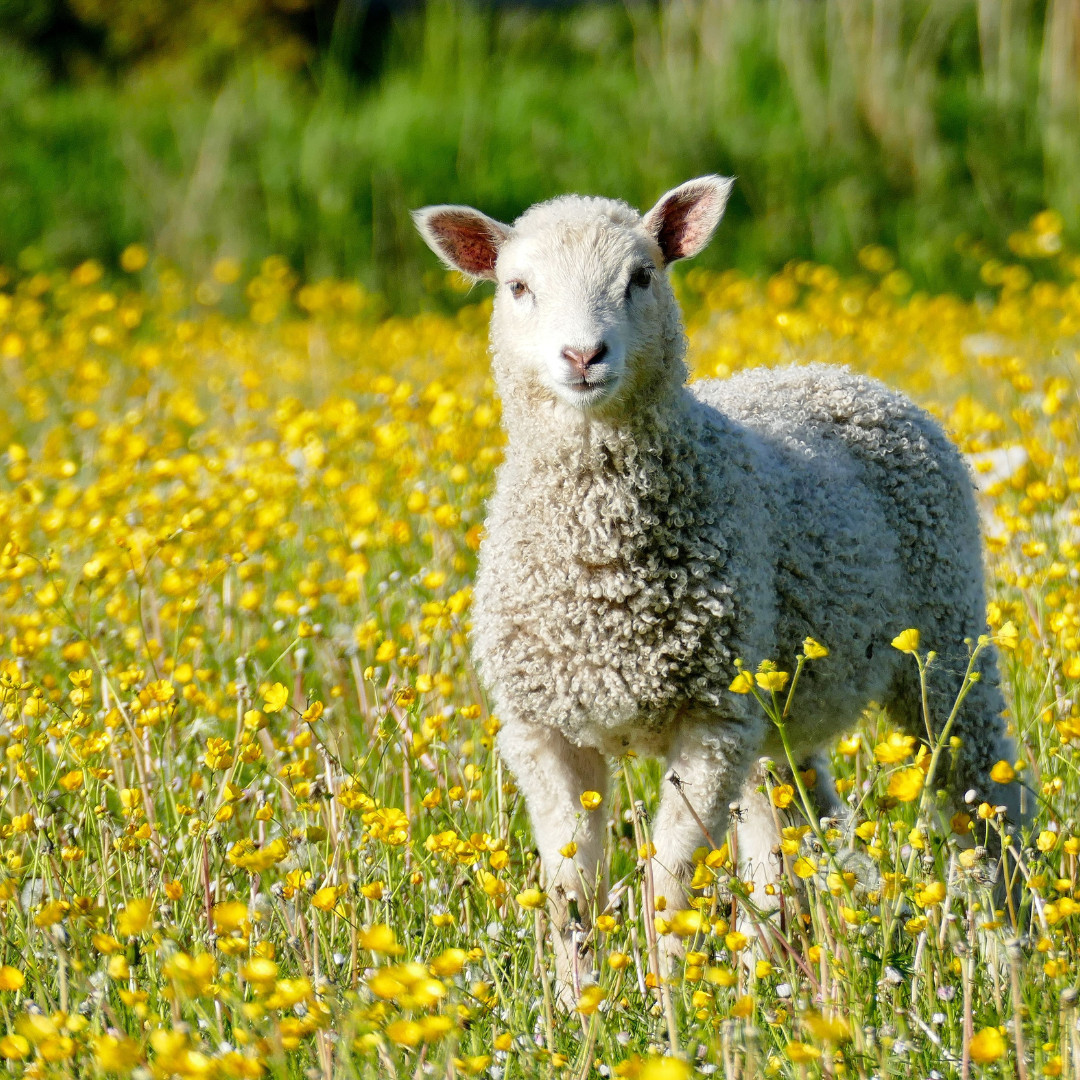
This post may contain affiliate links, which means that I may receive a commission if you make a purchase using these links, with NO additional cost to you.
When selecting a sheep breed for your homestead, it is important to consider what you want sheep for. Are you looking for them to fill your freezer or cloth your family, or both? Keep reading for the favorite breeds for each category.
First, keep in mind that sheep are browsers. This means they are going to naturally select the broadleaf weeds above the grass and woody plants. If you have a weedy area, sheep will love it.
Meat breeds of sheep are sheep that do not have high quality wool. They still grow wool, but the wool tends to be coarse and not soft. These breeds are good at growing muscle and tend to be bigger boned. Popular breeds for this are the Suffolk (my personal favorite), Hampshire, Katahdin, and Doper. Suffolk and Hampshire will produce a bigger carcass. Katahdin and Doper breeds are smaller, but more popular because of their easy care and smaller frame. Katahdin’s are famous for their ability to shed their wool coat in the spring.
Wool breeds of sheep may not have the best growing meat, but have outstanding soft, and fine wool coats. The most popular breed for wool is the Merino. Other popular breeds are the Romanoff, Romney, Lincoln, and Leicester Longwool. These breeds will grow a long wool fleece every year and need sheered. That fleece will be soft and great for spinning and making cloths with.
Dual purpose breeds have a little bit of both categories. They may not be the best in either category, but they tend to have the best blend of both. Top breeds for dual purpose, are the Rambouillet, Dorset, and Corriedale. These breeds tend to grow a good amount of muscle, but still have a decently soft fleece.
Some breeds are more prone to multiple lambs, some are more resistant to parasites, some have a reputation for being smarter or more hardy, some more tolerant to heat or cold. Every breed has its perks and downfalls. It is important to research each breed to make sure they will match your environment and needs.
As I've grown in my journey as an entrepreneur, mom, gardener, and livestock owner, I struggled to find a planner that met my needs and kept me organized. So, I MADE MY OWN. You can take a look at it on the link blow and buy it on amazon below:
Don't want the whole calendar part? I got you! I pulled the gardening and animal care pages out and put them in a book all their own.
Wanting a community to lean into? Join the FREE Helping Your Family Homestead for Food group! This community is for the Mommas, looking to stay home and raise their kids, but unsure how to keep everyone fed and make ends meet. I share tips from my journey from the office, to half the income and feeding my family from home, while maintaining good nourishing food. Tips include: gardening, bulk buying, caning,/preserving, livestock, homesteading, and home remedies. Your family is precious and this group is to help you gain the knowledge and tools to keep your family well and not reliant on outside professionals. Remedies and tips are easy and simple for the busy momma, time is precious after all, including pregnancy, birth, young kids, and illness. Trust your Momma gut again! This community offers the resources + community you need to help get started on your journey and prepare for whatever future you envision.
Starting to garden doesn't have to be hard! I gathered all the tips I've learned over my gardening learning curve and made them into a simple course to jump start your gardening your life.
Supporting Your Family Naturally From the Inside Out community!! This community is for the Mommas, looking to Support Your Family from Nature for Wellness. Tips range from nutrition, herbals, detoxing, natural cleaning, and essential oils. Basically all the things I’ve learned slowly over the past 5+ years if my journey. We have moved off Facebook, so to better serve our community and be able to discuss openly option for providing for your family in the best way possible.
Join the FREE Community
Join the FREE Community
I've had 3 very different pregnancies. After the first traumatic birth, I learned better and how to care for my body naturally and prevent common pregnancy and birth problems before they arise. This quick course will get you the tools you need to have a naturally healthy pregnancy, labor, and delivery. My first pregnancy I had a normal western medicine all the things pregnancy. My second? I flipped to completely natural, no medicine. Bonus: Preventing Preeclampsia Without the Aspirin & Healing from Birth Trauma
Click here to get the stories straight to your email:
For more on wellness tips click here:
For more on homesteading on your budget click here:
For more simple DIY updates click here:

